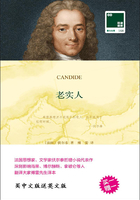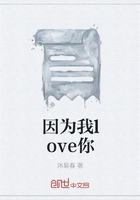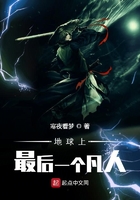It was a dull, heavy afternoon, and, on the long, dusty road, there was not a horse or even a person on foot to be seen. The birds were taking their afternoon nap; and the leaves were hanging lazily down from the poor trees, which were dying with thirst. There were three tumble-down cottages on one side of the road. The door of one of them opened, and a woman"s voice called out, "Come, Yvette (ee- vet"); go out and play. "In answer to the call, a little girl, of some three or four years, soon appeared, and, slowly and carefully, began to climb down the steep steps from the house to the footpath.
The child had on a little bonnet made of two pieces of muslin sewn together, from which a few tresses of fair hair fell over her forehead and down the back of her neck. Her little frock had been lengthened many times, and the waist was now up under the arms. As to shoes and stockings-- well, it was not very cold, and so, for the present, they were put away.
When once she had reached the bottom of the steps, the child stood upright, and looked round for a minute or two, deep in thought, her little finger pressed against her face. Play! Yes; it was all very well, but at what should she play?
Yvette sat down just near a great heap of stones, which her father had to break into small pieces in order to fill in the ruts. When she was snugly settled, she began to fumble in her pocket; and there she found all kinds of wonderful things: two cherry-stones, a piece of string, a small carrot, a shoe button, a little bit of blue braid, and some crumbs of bread. Now, these were all very nice in their way, but somehow they did not seem at all nice just then. She put them all very carefully back, one by one, in her pocket.
Then there was silence. Yvette was not happy. The little face puckered itself up, the little nose was all screwed up, and the mouth was just opening-tears were surely on the way! Just at that moment, by good luck, the Children"s Fairy was passing by.
Now, you perhaps do not know about this fairy, for no one ever sees her; but it is the very one that makes children smile in their dreams, and gives them all kinds of pretty thoughts. Well, this good fairy saw that Yvette was just going to cry. She stretched her golden wandout over the heap of stones, and then flew away again, laughing, for she was just as light and as gay as a ray of sunshine.
Now, as soon as the fairy had gone, it seemed to the road-mender"s little daughter that one of the big stones near her had a face, and that it was dressed just like a little baby. Oh, it was really just like a little baby! Yvette stretched out her hand, took the stone up, and at once began to feel for it all the love that a mother feels for her child.
"Ah! " she said to it, cuddling it up in her arms, "do you want to be my little girl? You don"t speak-Oh! that is because you are too young-but I see you would like to speak. Very well, then; I will be your mother, and I shall l0ve you and never whip you. You must be good, though, and then I shall never scold you. Oh! but, if you are not good-you know I have a stick. Now come, I"m going to dress you better; you look dreadful in that frock. " Hereupon, Yvette rolled her child up in her pinafore, so that there was nothing to be seen of the stone but what was supposed to be the baby"s head.
"Oh, how pretty she is, dear little thing! There now, she shall have something to eat. Ah! you are crying; but you must not cry, my pretty one-there, there. " And the hard stone was rocked gently in the soft little arms of itsfond mother.
"Bye-bye, baby-bye-bye-bye, " Yvette sang with all her might, tapping her little daughter"s back, but plainly all to no purpose, for the stone would not go to sleep. " Ah! naughty girl; you won"t go to sleep; Oh, no! I won"t tell you any more stories. I have told you "Tom Thumb," and that"s quite enough for to-night. Go to sleep-quick-quick, I say. Oh, dear, dear! Naughty child! What! You are crying again! If you only knew how ugly you are when you cry! There! now I"m going to slap you-take that, and that, and that, to make you quiet. Oh, dear! how dreadful it is to have such a child! I believe I"ll change you for a boy.
" Now, just say you are sorry for being so naughty- What? You won"t? I"ll give you another chance. Now-one, two, three. Oh, very well! I know what I shall do. I shall just go and take you back. I shall say, "If you please, I"ve a dreadful little girl, and I want to change her for a nice little boy." And then they"ll say, "Yes, ma"am; will you have him with light hair or dark?" "0h!" I shall say, "I don"t mind so long as he is good." "He"ll be very dear though, ma"am," they"ll say; "good little boys are very rare, and they cost a great deal." "How much?" I shall ask. "Why, one penny, ma"am." And then I shall think about it. Now then, are you going to be good, and say you are sorry? No? Oh, very well-it"s too late now-I"ve changed you. I have no littlegirl now, but a very pretty little boy named Zizi (zee-zec)."The stone at once underwent a complete change. Just now, when it was a little girl, it had been very quiet and gentle, and had kept quite still on Yvette"s lap. Now that it was a boy, there was no more peace; it would jump about, and it would try to get away, for boys are always so restless.
"Zizi, will you be still, and will you stay on my lap instead of tumbling about in the road? There, let me lift you up! Oh, dear! How heavy boys are! There now, don"t you stir, but just eat your bread and milk. It will make you grow, and then, when you are big, you"ll have beautiful grey whiskers, like father. You shall have a pretty cap, too, and perhaps you will be a policeman. It"s very nice to be a policeman, you know, because policemen are never put in prison-they take other people there if they make a noise in the street. O Zizi! do keep still. If you don"t, I"ll call the wolf-you know, the big wolf that runs off with little children, and takes them into the woods to eat them up. Wolf, wolf, where are you? "Just at that moment, a dog came in sight-a large, well-fed, happy-looking dog, bold, too, and full of fun. He belonged to a carrier who was always moving about from place to place; so the dog, no matter where he was, could always make himself quite at home.
Now, the dog had grown tired of following his master"s cart; and, when he saw, in the distance, something that was moving about, he bounded off to find out what it was. This something was Yvette and her little boy.
"Look, look! " exclaimed the small mother, and there was a tremble in her voice. "You see he is coming-the big wolf! "He was coming; there was no doubt about that, for he was tearing along, and his tongue was hanging out, and his ears were standing up.
The little stone boy was not at all frightened; but Yvette began to be sorry for having called the dreadful animal. Oh, if she could only get away now! But, alas! she did not dare to move or even to speak.
The dog came straight to them. Poor Yvette, half frightened to death, threw away the precious stone baby she had been petting, and, picking herself up, began to run, calling out, " Mother, mother!"The dog was quite near her, jumping up at her, and then, suddenly, he turned to go and sniff at the little stone boy. Perhaps he thought it was a bone or a piece of bread; but he soon found out his mistake, and then he rushed to the hedge to bark, and wake up all the birds.
As to Yvette, she was hurrying along as fast as her little legs could carry her, for she was in despair, as shethought the wolf was just behind her, and she fancied that she still felt his hot breath on her little hand. She stopped when she got to the steps of her home, for she was out of breath, and all trembling with terror, and she felt sure that, if she tried to scramble up the steps, the wolf would bite her legs. Suddenly, the idea which the ostrich once had came to her, and she rushed into the corner which was formed by the front of the house and the stone steps, and, holding her face close to the wall, so that she could not see the dreadful animal, she was sure that she, too, was out of his sight.
She st ay e d t he re some minu t e s, in g re at t e rror, thinking, "Oh, if I move, he"ll eat me up! " She was quite surprised even that he did not find her, and that his great teeth did not bite her, for she always thought wolves were so quick to eat up little girls. Whatever could he be doing? And then, not hearing any sound of him, she thought she would risk one peep round. Very slowly, she turned her head, and then, as nothing dreadful happened, she grew bolder and bolder.
The wolf was not in sight; and, instead of the barking which had frightened her so much, she now heard a set of little bells tinkling, and, in the distance, she saw a wagon with four horses coming along. The sound of the bells was so pleasant that Yvette forgot her duty as a mother, andstood there watching the wagon as it came on.
Suddenly the child uttered a cry of horror. Her child, her little son, was under the heavy wheels! Crunch!crunch! and it had gone by, the horrible wagon. Yvette went on to the main road, and her little heart was very full; for there, where poor Zizi had been lying, there was only some yellowish, crunched stone. Zizi had been ground into powder by the huge wheels.
"Cruel, wicked man! " she cried; and then, her eyes hap p e ning t o f all on t he he ap of st one s w hich had supplied her with a family, she saw another stone smiling at her. She ran quickly to it, picked it up, kissed it, and, happy in her new treasure, cried out to the carrier, whom she could still see in the distance, "Ah! I don"t care! I"ve another-there, then! and it"s a girl this time. I won"t have any more dreadful boys to be afraid of wolves, and to go and get themselves killed just to make their poor mother unhappy. "I wonder whether you can guess the name of the Children"s Fairy? We all know her, and she is called Fancy, or, sometimes, Make-believe.
From the French
Author.-The story is taken from the Strand Magazine. It is a translation from the French.
General Notes.-Describe the weather, the road, the bird, the leaves, the cottages, the child. What had she in her pocket? What are the chief things a boy has in his pocket? How did Yvette treat the stone? What did she call it? (Zizi is a pet name for Isidore.) What"was to be Zizi"s future? How did the dog treat Zizi? What was the end of Zizi? How did Yvette console herself?















